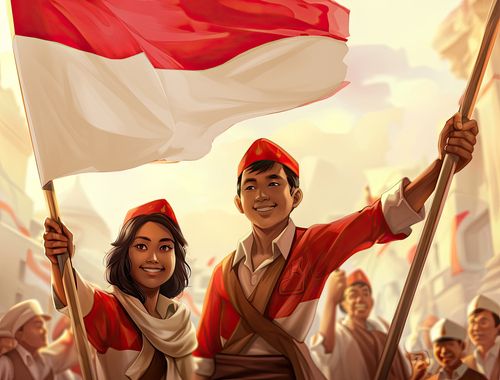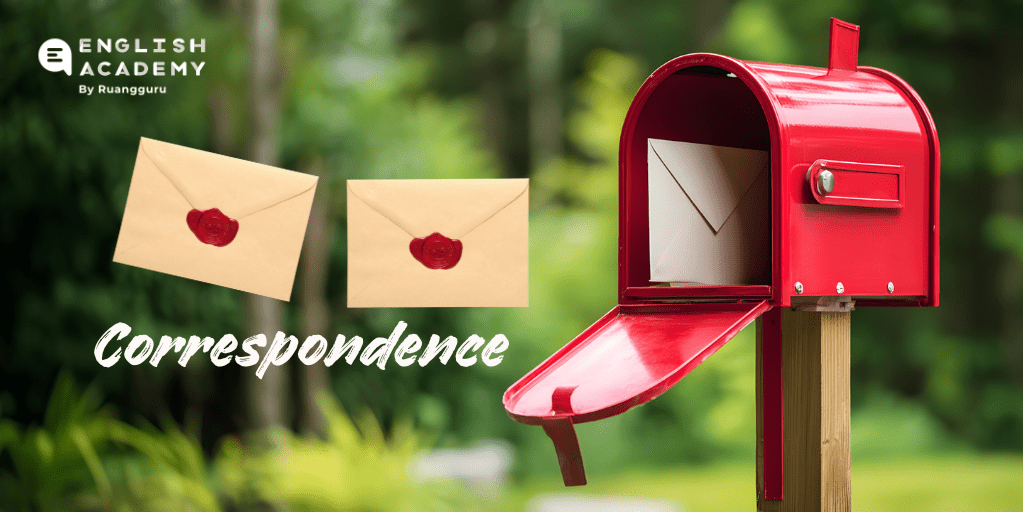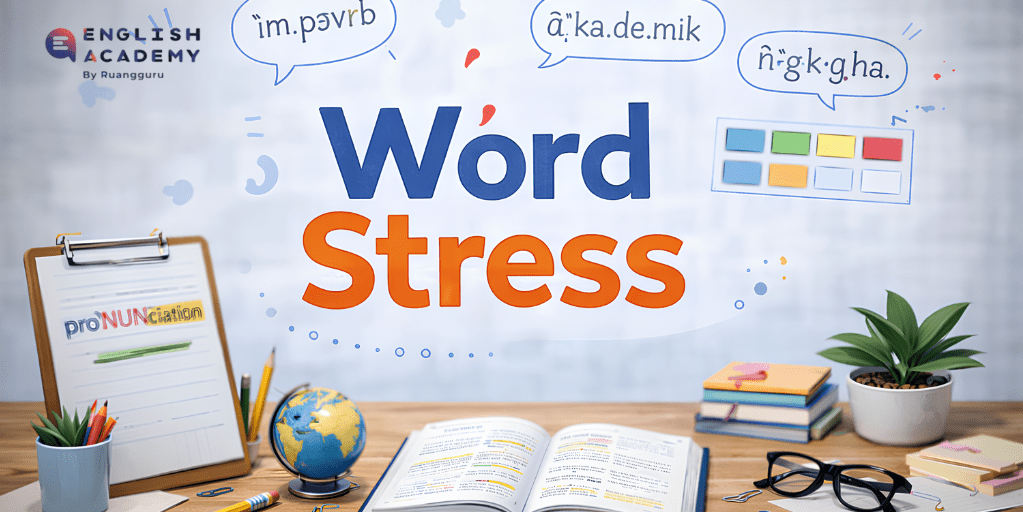Pertanyaan dan Contoh Jawaban IELTS Speaking Part 1

Dalam IELTS speaking, sebaiknya kamu memahami pertanyaan yang ditanyakan oleh examiner. Jadi, jangan dihapal, ya! Maka dari itu, yuk simak beberapa contoh pertanyaan dari tema-tema yang sering diujikan ketika tes IELTS speaking!
__
Tes IELTS yang satu ini paling beda dari yang lain. Sebab, kamu nggak akan mengerjakan soal ‘sendirian’, tapi kamu akan berhadapan langsung dengan examiner atau penguji! Wah~ Bikin dag dig dug gak tuh.
Tenang guys. Para examiner tersebut adalah guru bahasa Inggris. Jadi, salah satu cara untuk menenangkan hati dan pikiran sebelum dan ketika ujian adalah anggap saja kamu sedang latihan bersama mentor kamu. Kalau sudah tenang, pasti kamu bisa melalui tes IELTS Speaking dengan lancar.
Ingat guys, dalam IELTS Speaking, ada tiga part yang akan kamu hadapi. Part pertama, kamu akan ditanya hal-hal yang dekat dengan kehidupan kamu, seperti keluarga, kampung halaman, hobi, dan lain-lain. Part kedua, kamu akan diberikan topik tertentu untuk kamu ulas selama 1-2 menit. Part ketiga, kamu akan berdiskusi dengan examiner seputar topik yang kamu dapatkan di part kedua.
Tapi, artikel ini hanya membahas pertanyaan dan jawaban IELTS Speaking part 1 saja, ya!
Oiya, kamu juga bisa nih menyimak kembali artikel tentang tips menghadapi IELTS Speaking. Yang pasti sih, ketika kamu mempelajari beberapa contoh pertanyaan IELTS Speaking, kamu jangan menghapal jawabannya, tapi dipahami saja pertanyaannya.
Baca Juga: Tips Menghadapi IELTS Speaking Section
Contoh IELTS Speaking Part 1
Family

(Family illustration – Freepik.com)
- Do you have a large family or a small family?
I come from a relatively small family. It consists of my parents, my younger sibling, and myself. While we may not be a large extended family, we are quite close-knit and share a strong bond. This smaller family size allows for more intimate gatherings and easier communication, which I appreciate.
- Can you tell me something about them?
Certainly. My parents have been a significant influence in my life. My father works in one of television station in Indonesia and has always been a source of guidance and support. He instilled in me the values of hard work and perseverance. My mother, on the other hand, works as a housewife, and her nurturing nature has created a warm and supportive home environment.
I also have a younger sibling, Lanang, who is currently a student in one of junior high school. We share a close relationship, and despite the typical sibling disagreements, we have a lot of fun together. Our family dynamics are marked by mutual respect, shared responsibilities, and a sense of unity. This supportive family structure has played a crucial role in shaping my values and personality.
- How much time do you manage to spend with members of your family?
Given the demands of our individual schedules, it can sometimes be a challenge to find extended periods for family time. However, we make a conscious effort to spend quality time together regularly. On weekdays, we often have dinner together, and that becomes a time for us to catch up on each other’s day. During weekends, we try to plan activities such as outings, movie nights, or simply relaxing at home.
While the quantity of time may vary, what’s crucial for us is the quality of the time we spend together. We make sure to engage in meaningful conversations and share experiences that strengthen our family bonds. Despite our busy lives, maintaining a balance and allocating dedicated time for family is something we consider essential.
- What sorts of things do you like to do together?
As a family, we enjoy a variety of activities that cater to our diverse interests. One common interest we share is a love for cooking, so we often come together to prepare and enjoy meals. This not only strengthens our bond but also allows us to experiment with different recipes.
Additionally, we appreciate outdoor activities such as hiking or picnics in the nearby parks. These outings provide a refreshing break from our routines and give us an opportunity to connect with nature.
- Did/Do you get on well with your family? [Why?]
Yes, I am fortunate to have a positive and harmonious relationship with my family. There are a few reasons why our family dynamics work well:
Firstly, communication is a key factor. We make an effort to express our thoughts and feelings openly, which helps to avoid misunderstandings and promotes a sense of understanding.
Secondly, mutual respect is a fundamental aspect of our interactions. Each family member’s opinions and perspectives are valued, fostering an environment where everyone feels heard and appreciated.
Lastly, a good sense of humor plays a role in diffusing tension and adding joy to our interactions. We often find laughter to be a great way to bond and create a positive atmosphere within our family.
Overall, the combination of effective communication, mutual respect, and humor contributes to the positive dynamics within our family.
Education

(Education illustration – Freepik.com)
- What do you study?
In terms of my academic pursuits, I am currently studying literature at Monash University. This field has always intrigued me because I love reading a poetry and novel since I was in elementary school.
Studying literature has not only expanded my knowledge but has also allowed me to engage in critical thinking and problem-solving, skills that I believe are essential for my future endeavors in this field.
- What is special about this subject?
Literature holds a special place in my academic pursuits because it allows me to delve into the rich and diverse world of written expression. What makes this subject particularly special for me is my lifelong passion for reading poetry and novels, dating back to my elementary school days.
Studying literature not only deepens my appreciation for the art of storytelling but also sharpens my critical thinking and analytical skills. Each piece of literature is a tapestry of emotions, ideas, and cultural nuances, fostering a profound connection between the reader and the author’s creative expression. This depth of connection and the intellectual challenges posed by the subject make literature truly special to me.
- Is there anything you find difficult about it?
While my passion for literature is undeniable, like any academic pursuit, there are certain challenges associated with studying this subject. One of the aspects that I find challenging is the interpretative nature of literary analysis. Literature often invites multiple perspectives, and interpreting the nuanced meanings of texts can be both intriguing and complex.
Moreover, delving into different literary theories and understanding various critical approaches can be intellectually demanding. It requires a careful examination of literary works from diverse angles, which sometimes poses a challenge in balancing subjective interpretations with the academic rigor expected in the field.
- Where do you study? What’s your university/college like?
Currently, I am enrolled in the literature program at Monash University. Monash is renowned for its commitment to academic excellence and offers a vibrant and diverse learning environment. The university provides state-of-the-art facilities, including well-equipped libraries and research centers, fostering an atmosphere conducive to intellectual growth.
What sets Monash apart is its emphasis on fostering critical thinking and encouraging students to engage with their chosen fields in a comprehensive manner. The faculty comprises experienced educators and researchers who are dedicated to guiding students through their academic journey. The university’s commitment to a global perspective is reflected in its diverse student body and a curriculum that incorporates a broad range of literary traditions.
Baca Juga: Soal dan Contoh Jawaban IELTS Writing Section Task 1
Job

(Job illustration – Freepik.com)
- What’s your job?
As an aspiring author, my primary focus is on honing my writing skills and developing a body of work that reflects my creative vision. While I may not currently have a specific job title in the traditional sense, I dedicate a significant portion of my time to crafting stories, poems, or essays.
I view writing as both a passion and a potential future profession. The goal is to share my perspectives, imagination, and insights with a broader audience through the written word. While the journey to becoming a published author can be challenging, the joy of storytelling and the prospect of connecting with readers drive my commitment to this pursuit.
- Is it a common job in your country?
In Indonesia, being an author is a recognized and relatively common profession. Indonesia has a rich literary tradition with a diverse range of authors contributing to the country’s vibrant literary landscape. Indonesian literature includes a variety of genres, from traditional folk tales to contemporary novels and poetry.
Authors in Indonesia often have opportunities to publish their works through both traditional publishing houses and emerging digital platforms. There is also a growing literary community that supports and celebrates local authors through book events, festivals, and writing workshops.
- What are your working hours like?
As an aspiring author, my working hours are flexible and often dictated by the creative process. Unlike traditional office hours, writing doesn’t adhere to a strict schedule. Instead, I find inspiration can strike at any time, whether it’s early in the morning, late at night, or during the middle of the day.
I don’t have fixed working hours in the conventional sense, but I do allocate dedicated time each day or week to focus on my writing projects. This flexibility allows me to adapt to the ebb and flow of creativity, ensuring that I can capture ideas and translate them into my work whenever inspiration strikes.
- Do you get a lot of vacation and off time?
My work doesn’t follow a traditional employment structure with set vacation and off time. Writing is a continuous and often immersive process that doesn’t adhere to a strict schedule. While I have the flexibility to organize my time, the nature of creative endeavors means that the boundaries between work and leisure can be fluid.
That said, breaks and moments of rest are crucial for maintaining creativity and avoiding burnout. I may take occasional breaks to recharge, explore new environments for inspiration, or simply step away from the writing process to gain fresh perspectives.
- Are you thinking of changing your job?
My current focus is on developing my writing skills and pursuing a career in the field of literature. While I am open to exploring diverse opportunities within the literary domain, such as editorial roles or engagement in literary events, my overarching goal remains centered on contributing to and thriving in the world of literature. At this stage, a shift to a completely different profession is not on my immediate horizon.
Festivals

(Independence day illustration – Freepik.com)
- Tell me about the most important festival in your country
In Indonesia, one of the most significant and widely celebrated festivals is Independence Day, which falls on the 17th of August. This day marks Indonesia’s declaration of independence from Dutch & Japan colonial rule in 1945.
Independence Day is a national holiday, and the celebrations are characterized by patriotic events, cultural performances, and various festivities throughout the country. The day is a momentous occasion that unites Indonesians from diverse backgrounds in commemorating their history and the spirit of nationalism.
- What special food and activities are connected with this festival?
Independence Day in Indonesia is marked by various special foods and activities that reflect the spirit of the celebration. There are popular dishes such as nasi tumpeng, rendang, and other local delicacies from different regions of Indonesia are also featured in celebrations.
Besides that, there are various community competitions are organized, emphasizing teamwork, creativity, and sportsmanship. These competitions often include traditional games, such as “Panjat Pinang” (climbing a greased pole), “Balap Karung” (sack race), and other contests that involve both children and adults.
- What do you most enjoy about it?
Absolutely. The festive atmosphere, cultural celebrations, and expressions of patriotism contribute to a shared sense of identity and belonging among Indonesians. People often appreciate the opportunity to come together with friends and family, participate in community activities, and celebrate the nation’s history and achievements. The enjoyment is derived from a combination of traditional festivities, cultural expressions, and the communal spirit that characterizes Independence Day celebrations in Indonesia.
- Do you think festivals are important for a country? [Why?]
In my opinion, festivals hold a significant and multifaceted importance for a country. These cultural celebrations serve as a vibrant tapestry that weaves together the threads of a nation’s heritage, traditions, and diversity. Beyond the joyous expressions of music, dance, art, and cuisine, festivals play a crucial role in fostering a sense of unity and belonging among the people. They transcend societal differences, creating a shared space where communities come together in celebration.
Economically, festivals contribute to local prosperity by stimulating tourism and supporting businesses. Moreover, festivals are educational, offering a window into a country’s history, customs, and values. They provide a platform for the expression of identity, allowing individuals and communities to proudly showcase their unique cultural tapestry.
Baca Juga: Pertanyaan dan Contoh Jawaban IELTS Speaking Part 2
Musical instruments

(Music illustration – Freepik.com)
- Which instrument do you like listening to most? [Why?]
I particularly enjoy listening to the piano. In my opinion, piano’s versatility and expressive range make it a captivating instrument. Its ability to convey a wide spectrum of emotions, from the gentle melancholy of a soft melody to the powerful resonance of a grand crescendo, fascinates me.
The piano’s rich timbre and the intricate interplay of notes allow for the interpretation of various genres, from classical compositions to contemporary pieces. Whether it’s the soothing elegance of classical sonatas or the dynamic energy of modern compositions, the piano’s capacity to evoke emotions and tell a musical story resonates with me deeply.
- Have you ever learned to play a musical instrument? [Which one?]
Yes, I learned violin when I was five years old. For me, playing the violin requires a unique skill set, involving the coordination of fingers, hands, and bowing techniques to produce harmonious sounds. It’s a beautiful and expressive instrument with a rich history, often featured in classical and various genres of music.
- Do you think children should learn to play a musical instrument at school? [Why/Why not?]
Yes, I believe that children should have the opportunity to learn to play a musical instrument at school. There are several reasons why this can be beneficial for their overall development.
Firstly, learning to play a musical instrument enhances cognitive skills. Secondly, musical education fosters creativity and self-expression. Additionally, learning to play an instrument promotes discipline and perseverance. Mastering an instrument requires consistent practice and dedication, teaching children the value of hard work and commitment. These qualities are transferable to other areas of their academic and personal lives.
- How easy would it be to learn to play an instrument without a teacher? [Why?]
Learning to play an instrument without a teacher can be challenging, and the ease of the process depends on various factors, including the individual’s aptitude, the complexity of the instrument, and the availability of learning resources.
Food and cooking

(Cooking illustration – Freepik.com)
- What kinds of food do you like to eat?
I particularly enjoy eating chicken. It’s a versatile protein that can be prepared in various delicious ways. Whether it’s grilled, roasted, or in a curry, the texture and flavor of chicken appeal to me.
Additionally, chicken dishes are often a part of diverse cuisines around the world, providing a wide range of options to explore. I appreciate the flexibility of chicken in adapting to different spices and cooking styles, making it a staple in many of my meals.
- What kind of new food would you like to try? [Why?]
I’ve always been intrigued by the idea of trying authentic Ethiopian cuisine. The rich blend of flavors, the use of unique spices, and the communal style of dining make it a fascinating culinary experience.
I believe exploring new foods is not only a way to satisfy my taste buds but also an opportunity to learn about different cultures and their culinary traditions. Ethiopian cuisine, with its diverse range of dishes like injera and doro wat, holds a special appeal to me as it represents a culinary adventure that goes beyond mere taste – it’s a cultural exploration on a plate.
- Do you like cooking? [Why/Why not?] What was the last meal you cooked?
I thoroughly enjoy cooking. For me, it’s a creative and rewarding activity that allows me to experiment with flavors and techniques. Cooking provides a sense of accomplishment, especially when sharing the meal with others.
The last meal I cooked was a homemade vegetable stir-fry. I find stir-frying to be a quick and healthy cooking method, and it allows me to incorporate a variety of colorful vegetables. The medley of flavors, combined with the sizzling sounds in the pan, makes the cooking process both enjoyable and appetizing. Overall, cooking is a passion of mine, and the joy of creating something delicious from scratch is immensely satisfying.
- Do you prefer home-cooked food or food from restaurants? [Why?]
I tend to prefer home-cooked food over dining in restaurants. The main reason for this preference is the control it provides over the ingredients and cooking methods. When preparing meals at home, I can choose fresh, high-quality ingredients, tailor the dishes to my taste preferences, and ensure that the food is cooked in a way that aligns with my dietary choices.
Additionally, home-cooked meals create a sense of warmth and comfort, and sharing them with family or friends enhances the overall dining experience. While restaurants offer convenience and a diverse range of cuisines, the personal touch and customization available in home-cooked food make it my preferred choice.
Baca Juga: Soal dan Contoh Jawaban IELTS Writing Section Task 2
Clothes

(Clothes illustration – Freepik.com)
- How important are clothes and fashion to you? [Why/Why not?]
Clothes and fashion hold a moderate level of importance in my life. While I appreciate the role they play in self-expression and presentation, I don’t prioritize following the latest trends or adhering strictly to fashion norms. Comfort and personal style matter more to me than conforming to societal expectations.
I believe that what we wear can reflect our personality and individuality, and I enjoy selecting clothes that make me feel confident and comfortable. However, I don’t see fashion as a defining aspect of my identity, and I tend to prioritize other aspects of life over keeping up with the latest trends.
- What kind of clothes do you dislike? [Why?]
I don’t particularly have a strong dislike for any specific type of clothing. I believe that fashion is subjective, and what might not appeal to me could be a preferred style for someone else. Instead of focusing on dislikes, I tend to gravitate towards clothing that aligns with my comfort and personal style. I value individuality in fashion choices and respect the diverse preferences that people have when it comes to clothing.
- How different are the clothes you wear now from those you wore 10 years ago?
Over the past decade, there has been a noticeable evolution in my clothing choices. Ten years ago, my style was perhaps more influenced by current trends, and I may have been more experimental in trying out various looks.
In contrast, my clothing preferences now tend to lean towards a blend of comfort and a more refined personal style. I’ve developed a better understanding of what suits me and what I feel confident wearing. While some staple pieces may have remained constant, there’s been a shift towards a more timeless and versatile wardrobe, reflecting a maturation in my approach to fashion.
- What do you think the clothes we wear say about us?
The clothes we wear can convey various aspects of our identity, personality, and lifestyle. There are some ways in which clothing choices may communicate information about an individual personal style, occupation and role, cultural identity, mood and expression, hobbies, and beliefs.
Baca Juga: 4 Keterampilan Berbahasa Inggris dalam IELTS: Listening, Reading, Writing, Speaking
Technology at home/office

(Technology at home illustration – Freepik.com)
- How often do you use electric appliances at home/office?
I use electric appliances regularly both at home and in the office. At home, daily activities such as cooking, cleaning, and entertainment involve various appliances like the refrigerator, stove, vacuum cleaner, and television.
In the office, the use of computers, printers, and other electronic devices is integral to my work. Additionally, I rely on appliances like a microwave and coffee maker for convenience during breaks. The frequency of use depends on the specific appliance and its role in facilitating daily tasks or work-related activities.
- How do you think they help you with your chores?
Electric appliances play a crucial role in simplifying and expediting various chores in my daily life. For instance, the washing machine significantly reduces the time and effort needed for laundry, making it more efficient. The vacuum cleaner makes cleaning tasks much easier and more thorough than traditional methods.
In the kitchen, electric appliances like the stove, microwave, and blender expedite cooking processes, allowing for quick and convenient meal preparation. These appliances not only save time but also contribute to the overall convenience and productivity of daily chores, enabling me to allocate more time to other activities or leisure.
- Are there any other advantages?
The utilization of electric appliances offers a multitude of advantages that extend far beyond the realm of convenience. One significant benefit lies in the realm of energy efficiency, as modern appliances are often designed with a focus on minimizing energy consumption, thereby contributing to environmental sustainability.
Additionally, electric appliances provide users with a level of precision and control not easily achieved through traditional methods. The ability to customize settings in appliances such as stoves or climate control systems results in more accurate and consistent outcomes. Labor savings represent another noteworthy advantage, with appliances like dishwashers automating tasks that would otherwise demand substantial physical effort.
- Are there any drawbacks to using these appliances?
The integration of electric appliances into our daily lives, while providing numerous advantages, is not without its drawbacks. One significant concern is the substantial energy consumption associated with many of these appliances. If not designed to be energy-efficient, they can contribute to increased utility bills and have a notable environmental impact. Furthermore, the dependency of these appliances on a stable electricity supply presents a vulnerability, as power outages or disruptions can temporarily incapacitate their functionality.
- Do you think people should use electric appliances more often or less often than they do now? [Why/Why not?]
The question of whether people should increase or decrease their usage of electric appliances involves a nuanced consideration of various factors. Advocates for using electric appliances more often argue that these devices significantly enhance convenience and efficiency in daily life.
Embracing technological advancements can lead to improved energy efficiency and innovative features, ultimately contributing to an improved quality of life. Proponents of increased usage believe that leveraging the capabilities of electric appliances aligns with the fast-paced and technologically driven nature of contemporary society.
Baca Juga: Contoh Soal IELTS Reading Section dan Pembahasannya
—
Wah, sebelum real test, kamu udah di-spill duluan nih beberapa contoh pertanyaan dan jawaban yang kemungkinan diujikan saat tes IELT Speaking part 1. Artikel ini boleh banget jadi bahan belajar kamu. Tapi, jangan lupa juga untuk latihan beneran dengan lawan bicara supaya speaking kamu makin lancar nan fluent.
Eits, kalau bisa lawan bicara kamu yang udah expert dalam IELTS, ya! Supaya kamu dapat feedback agar IELTS Speaking kamu makin jago dan dapat band score yang tinggi!
Nah, kalau kamu bingung cari lawan bicara pas untuk latihan, boleh banget lho join di kelas IELTS English Academy. Di sana kamu akan dibimbing oleh para mentor yang expert dalam IELTS. Yuk, segera daftar!
Referensi:
Tahasoni, Ebrahim. 2012. Master IELTS Speaking. [online] Available at: www.tahasoni.com [Accessed 29 November 2023].

Dalam IELTS speaking, sebaiknya kamu memahami pertanyaan yang ditanyakan oleh examiner. Jadi, jangan dihapal, ya! Maka dari itu, yuk simak beberapa contoh pertanyaan dari tema-tema yang sering diujikan ketika tes IELTS speaking!
__
Tes IELTS yang satu ini paling beda dari yang lain. Sebab, kamu nggak akan mengerjakan soal ‘sendirian’, tapi kamu akan berhadapan langsung dengan examiner atau penguji! Wah~ Bikin dag dig dug gak tuh.
Tenang guys. Para examiner tersebut adalah guru bahasa Inggris. Jadi, salah satu cara untuk menenangkan hati dan pikiran sebelum dan ketika ujian adalah anggap saja kamu sedang latihan bersama mentor kamu. Kalau sudah tenang, pasti kamu bisa melalui tes IELTS Speaking dengan lancar.
Ingat guys, dalam IELTS Speaking, ada tiga part yang akan kamu hadapi. Part pertama, kamu akan ditanya hal-hal yang dekat dengan kehidupan kamu, seperti keluarga, kampung halaman, hobi, dan lain-lain. Part kedua, kamu akan diberikan topik tertentu untuk kamu ulas selama 1-2 menit. Part ketiga, kamu akan berdiskusi dengan examiner seputar topik yang kamu dapatkan di part kedua.
Tapi, artikel ini hanya membahas pertanyaan dan jawaban IELTS Speaking part 1 saja, ya!
Oiya, kamu juga bisa nih menyimak kembali artikel tentang tips menghadapi IELTS Speaking. Yang pasti sih, ketika kamu mempelajari beberapa contoh pertanyaan IELTS Speaking, kamu jangan menghapal jawabannya, tapi dipahami saja pertanyaannya.
Baca Juga: Tips Menghadapi IELTS Speaking Section
Contoh IELTS Speaking Part 1
Family

(Family illustration – Freepik.com)
- Do you have a large family or a small family?
I come from a relatively small family. It consists of my parents, my younger sibling, and myself. While we may not be a large extended family, we are quite close-knit and share a strong bond. This smaller family size allows for more intimate gatherings and easier communication, which I appreciate.
- Can you tell me something about them?
Certainly. My parents have been a significant influence in my life. My father works in one of television station in Indonesia and has always been a source of guidance and support. He instilled in me the values of hard work and perseverance. My mother, on the other hand, works as a housewife, and her nurturing nature has created a warm and supportive home environment.
I also have a younger sibling, Lanang, who is currently a student in one of junior high school. We share a close relationship, and despite the typical sibling disagreements, we have a lot of fun together. Our family dynamics are marked by mutual respect, shared responsibilities, and a sense of unity. This supportive family structure has played a crucial role in shaping my values and personality.
- How much time do you manage to spend with members of your family?
Given the demands of our individual schedules, it can sometimes be a challenge to find extended periods for family time. However, we make a conscious effort to spend quality time together regularly. On weekdays, we often have dinner together, and that becomes a time for us to catch up on each other’s day. During weekends, we try to plan activities such as outings, movie nights, or simply relaxing at home.
While the quantity of time may vary, what’s crucial for us is the quality of the time we spend together. We make sure to engage in meaningful conversations and share experiences that strengthen our family bonds. Despite our busy lives, maintaining a balance and allocating dedicated time for family is something we consider essential.
- What sorts of things do you like to do together?
As a family, we enjoy a variety of activities that cater to our diverse interests. One common interest we share is a love for cooking, so we often come together to prepare and enjoy meals. This not only strengthens our bond but also allows us to experiment with different recipes.
Additionally, we appreciate outdoor activities such as hiking or picnics in the nearby parks. These outings provide a refreshing break from our routines and give us an opportunity to connect with nature.
- Did/Do you get on well with your family? [Why?]
Yes, I am fortunate to have a positive and harmonious relationship with my family. There are a few reasons why our family dynamics work well:
Firstly, communication is a key factor. We make an effort to express our thoughts and feelings openly, which helps to avoid misunderstandings and promotes a sense of understanding.
Secondly, mutual respect is a fundamental aspect of our interactions. Each family member’s opinions and perspectives are valued, fostering an environment where everyone feels heard and appreciated.
Lastly, a good sense of humor plays a role in diffusing tension and adding joy to our interactions. We often find laughter to be a great way to bond and create a positive atmosphere within our family.
Overall, the combination of effective communication, mutual respect, and humor contributes to the positive dynamics within our family.
Education

(Education illustration – Freepik.com)
- What do you study?
In terms of my academic pursuits, I am currently studying literature at Monash University. This field has always intrigued me because I love reading a poetry and novel since I was in elementary school.
Studying literature has not only expanded my knowledge but has also allowed me to engage in critical thinking and problem-solving, skills that I believe are essential for my future endeavors in this field.
- What is special about this subject?
Literature holds a special place in my academic pursuits because it allows me to delve into the rich and diverse world of written expression. What makes this subject particularly special for me is my lifelong passion for reading poetry and novels, dating back to my elementary school days.
Studying literature not only deepens my appreciation for the art of storytelling but also sharpens my critical thinking and analytical skills. Each piece of literature is a tapestry of emotions, ideas, and cultural nuances, fostering a profound connection between the reader and the author’s creative expression. This depth of connection and the intellectual challenges posed by the subject make literature truly special to me.
- Is there anything you find difficult about it?
While my passion for literature is undeniable, like any academic pursuit, there are certain challenges associated with studying this subject. One of the aspects that I find challenging is the interpretative nature of literary analysis. Literature often invites multiple perspectives, and interpreting the nuanced meanings of texts can be both intriguing and complex.
Moreover, delving into different literary theories and understanding various critical approaches can be intellectually demanding. It requires a careful examination of literary works from diverse angles, which sometimes poses a challenge in balancing subjective interpretations with the academic rigor expected in the field.
- Where do you study? What’s your university/college like?
Currently, I am enrolled in the literature program at Monash University. Monash is renowned for its commitment to academic excellence and offers a vibrant and diverse learning environment. The university provides state-of-the-art facilities, including well-equipped libraries and research centers, fostering an atmosphere conducive to intellectual growth.
What sets Monash apart is its emphasis on fostering critical thinking and encouraging students to engage with their chosen fields in a comprehensive manner. The faculty comprises experienced educators and researchers who are dedicated to guiding students through their academic journey. The university’s commitment to a global perspective is reflected in its diverse student body and a curriculum that incorporates a broad range of literary traditions.
Baca Juga: Soal dan Contoh Jawaban IELTS Writing Section Task 1
Job

(Job illustration – Freepik.com)
- What’s your job?
As an aspiring author, my primary focus is on honing my writing skills and developing a body of work that reflects my creative vision. While I may not currently have a specific job title in the traditional sense, I dedicate a significant portion of my time to crafting stories, poems, or essays.
I view writing as both a passion and a potential future profession. The goal is to share my perspectives, imagination, and insights with a broader audience through the written word. While the journey to becoming a published author can be challenging, the joy of storytelling and the prospect of connecting with readers drive my commitment to this pursuit.
- Is it a common job in your country?
In Indonesia, being an author is a recognized and relatively common profession. Indonesia has a rich literary tradition with a diverse range of authors contributing to the country’s vibrant literary landscape. Indonesian literature includes a variety of genres, from traditional folk tales to contemporary novels and poetry.
Authors in Indonesia often have opportunities to publish their works through both traditional publishing houses and emerging digital platforms. There is also a growing literary community that supports and celebrates local authors through book events, festivals, and writing workshops.
- What are your working hours like?
As an aspiring author, my working hours are flexible and often dictated by the creative process. Unlike traditional office hours, writing doesn’t adhere to a strict schedule. Instead, I find inspiration can strike at any time, whether it’s early in the morning, late at night, or during the middle of the day.
I don’t have fixed working hours in the conventional sense, but I do allocate dedicated time each day or week to focus on my writing projects. This flexibility allows me to adapt to the ebb and flow of creativity, ensuring that I can capture ideas and translate them into my work whenever inspiration strikes.
- Do you get a lot of vacation and off time?
My work doesn’t follow a traditional employment structure with set vacation and off time. Writing is a continuous and often immersive process that doesn’t adhere to a strict schedule. While I have the flexibility to organize my time, the nature of creative endeavors means that the boundaries between work and leisure can be fluid.
That said, breaks and moments of rest are crucial for maintaining creativity and avoiding burnout. I may take occasional breaks to recharge, explore new environments for inspiration, or simply step away from the writing process to gain fresh perspectives.
- Are you thinking of changing your job?
My current focus is on developing my writing skills and pursuing a career in the field of literature. While I am open to exploring diverse opportunities within the literary domain, such as editorial roles or engagement in literary events, my overarching goal remains centered on contributing to and thriving in the world of literature. At this stage, a shift to a completely different profession is not on my immediate horizon.
Festivals

(Independence day illustration – Freepik.com)
- Tell me about the most important festival in your country
In Indonesia, one of the most significant and widely celebrated festivals is Independence Day, which falls on the 17th of August. This day marks Indonesia’s declaration of independence from Dutch & Japan colonial rule in 1945.
Independence Day is a national holiday, and the celebrations are characterized by patriotic events, cultural performances, and various festivities throughout the country. The day is a momentous occasion that unites Indonesians from diverse backgrounds in commemorating their history and the spirit of nationalism.
- What special food and activities are connected with this festival?
Independence Day in Indonesia is marked by various special foods and activities that reflect the spirit of the celebration. There are popular dishes such as nasi tumpeng, rendang, and other local delicacies from different regions of Indonesia are also featured in celebrations.
Besides that, there are various community competitions are organized, emphasizing teamwork, creativity, and sportsmanship. These competitions often include traditional games, such as “Panjat Pinang” (climbing a greased pole), “Balap Karung” (sack race), and other contests that involve both children and adults.
- What do you most enjoy about it?
Absolutely. The festive atmosphere, cultural celebrations, and expressions of patriotism contribute to a shared sense of identity and belonging among Indonesians. People often appreciate the opportunity to come together with friends and family, participate in community activities, and celebrate the nation’s history and achievements. The enjoyment is derived from a combination of traditional festivities, cultural expressions, and the communal spirit that characterizes Independence Day celebrations in Indonesia.
- Do you think festivals are important for a country? [Why?]
In my opinion, festivals hold a significant and multifaceted importance for a country. These cultural celebrations serve as a vibrant tapestry that weaves together the threads of a nation’s heritage, traditions, and diversity. Beyond the joyous expressions of music, dance, art, and cuisine, festivals play a crucial role in fostering a sense of unity and belonging among the people. They transcend societal differences, creating a shared space where communities come together in celebration.
Economically, festivals contribute to local prosperity by stimulating tourism and supporting businesses. Moreover, festivals are educational, offering a window into a country’s history, customs, and values. They provide a platform for the expression of identity, allowing individuals and communities to proudly showcase their unique cultural tapestry.
Baca Juga: Pertanyaan dan Contoh Jawaban IELTS Speaking Part 2
Musical instruments

(Music illustration – Freepik.com)
- Which instrument do you like listening to most? [Why?]
I particularly enjoy listening to the piano. In my opinion, piano’s versatility and expressive range make it a captivating instrument. Its ability to convey a wide spectrum of emotions, from the gentle melancholy of a soft melody to the powerful resonance of a grand crescendo, fascinates me.
The piano’s rich timbre and the intricate interplay of notes allow for the interpretation of various genres, from classical compositions to contemporary pieces. Whether it’s the soothing elegance of classical sonatas or the dynamic energy of modern compositions, the piano’s capacity to evoke emotions and tell a musical story resonates with me deeply.
- Have you ever learned to play a musical instrument? [Which one?]
Yes, I learned violin when I was five years old. For me, playing the violin requires a unique skill set, involving the coordination of fingers, hands, and bowing techniques to produce harmonious sounds. It’s a beautiful and expressive instrument with a rich history, often featured in classical and various genres of music.
- Do you think children should learn to play a musical instrument at school? [Why/Why not?]
Yes, I believe that children should have the opportunity to learn to play a musical instrument at school. There are several reasons why this can be beneficial for their overall development.
Firstly, learning to play a musical instrument enhances cognitive skills. Secondly, musical education fosters creativity and self-expression. Additionally, learning to play an instrument promotes discipline and perseverance. Mastering an instrument requires consistent practice and dedication, teaching children the value of hard work and commitment. These qualities are transferable to other areas of their academic and personal lives.
- How easy would it be to learn to play an instrument without a teacher? [Why?]
Learning to play an instrument without a teacher can be challenging, and the ease of the process depends on various factors, including the individual’s aptitude, the complexity of the instrument, and the availability of learning resources.
Food and cooking

(Cooking illustration – Freepik.com)
- What kinds of food do you like to eat?
I particularly enjoy eating chicken. It’s a versatile protein that can be prepared in various delicious ways. Whether it’s grilled, roasted, or in a curry, the texture and flavor of chicken appeal to me.
Additionally, chicken dishes are often a part of diverse cuisines around the world, providing a wide range of options to explore. I appreciate the flexibility of chicken in adapting to different spices and cooking styles, making it a staple in many of my meals.
- What kind of new food would you like to try? [Why?]
I’ve always been intrigued by the idea of trying authentic Ethiopian cuisine. The rich blend of flavors, the use of unique spices, and the communal style of dining make it a fascinating culinary experience.
I believe exploring new foods is not only a way to satisfy my taste buds but also an opportunity to learn about different cultures and their culinary traditions. Ethiopian cuisine, with its diverse range of dishes like injera and doro wat, holds a special appeal to me as it represents a culinary adventure that goes beyond mere taste – it’s a cultural exploration on a plate.
- Do you like cooking? [Why/Why not?] What was the last meal you cooked?
I thoroughly enjoy cooking. For me, it’s a creative and rewarding activity that allows me to experiment with flavors and techniques. Cooking provides a sense of accomplishment, especially when sharing the meal with others.
The last meal I cooked was a homemade vegetable stir-fry. I find stir-frying to be a quick and healthy cooking method, and it allows me to incorporate a variety of colorful vegetables. The medley of flavors, combined with the sizzling sounds in the pan, makes the cooking process both enjoyable and appetizing. Overall, cooking is a passion of mine, and the joy of creating something delicious from scratch is immensely satisfying.
- Do you prefer home-cooked food or food from restaurants? [Why?]
I tend to prefer home-cooked food over dining in restaurants. The main reason for this preference is the control it provides over the ingredients and cooking methods. When preparing meals at home, I can choose fresh, high-quality ingredients, tailor the dishes to my taste preferences, and ensure that the food is cooked in a way that aligns with my dietary choices.
Additionally, home-cooked meals create a sense of warmth and comfort, and sharing them with family or friends enhances the overall dining experience. While restaurants offer convenience and a diverse range of cuisines, the personal touch and customization available in home-cooked food make it my preferred choice.
Baca Juga: Soal dan Contoh Jawaban IELTS Writing Section Task 2
Clothes

(Clothes illustration – Freepik.com)
- How important are clothes and fashion to you? [Why/Why not?]
Clothes and fashion hold a moderate level of importance in my life. While I appreciate the role they play in self-expression and presentation, I don’t prioritize following the latest trends or adhering strictly to fashion norms. Comfort and personal style matter more to me than conforming to societal expectations.
I believe that what we wear can reflect our personality and individuality, and I enjoy selecting clothes that make me feel confident and comfortable. However, I don’t see fashion as a defining aspect of my identity, and I tend to prioritize other aspects of life over keeping up with the latest trends.
- What kind of clothes do you dislike? [Why?]
I don’t particularly have a strong dislike for any specific type of clothing. I believe that fashion is subjective, and what might not appeal to me could be a preferred style for someone else. Instead of focusing on dislikes, I tend to gravitate towards clothing that aligns with my comfort and personal style. I value individuality in fashion choices and respect the diverse preferences that people have when it comes to clothing.
- How different are the clothes you wear now from those you wore 10 years ago?
Over the past decade, there has been a noticeable evolution in my clothing choices. Ten years ago, my style was perhaps more influenced by current trends, and I may have been more experimental in trying out various looks.
In contrast, my clothing preferences now tend to lean towards a blend of comfort and a more refined personal style. I’ve developed a better understanding of what suits me and what I feel confident wearing. While some staple pieces may have remained constant, there’s been a shift towards a more timeless and versatile wardrobe, reflecting a maturation in my approach to fashion.
- What do you think the clothes we wear say about us?
The clothes we wear can convey various aspects of our identity, personality, and lifestyle. There are some ways in which clothing choices may communicate information about an individual personal style, occupation and role, cultural identity, mood and expression, hobbies, and beliefs.
Baca Juga: 4 Keterampilan Berbahasa Inggris dalam IELTS: Listening, Reading, Writing, Speaking
Technology at home/office

(Technology at home illustration – Freepik.com)
- How often do you use electric appliances at home/office?
I use electric appliances regularly both at home and in the office. At home, daily activities such as cooking, cleaning, and entertainment involve various appliances like the refrigerator, stove, vacuum cleaner, and television.
In the office, the use of computers, printers, and other electronic devices is integral to my work. Additionally, I rely on appliances like a microwave and coffee maker for convenience during breaks. The frequency of use depends on the specific appliance and its role in facilitating daily tasks or work-related activities.
- How do you think they help you with your chores?
Electric appliances play a crucial role in simplifying and expediting various chores in my daily life. For instance, the washing machine significantly reduces the time and effort needed for laundry, making it more efficient. The vacuum cleaner makes cleaning tasks much easier and more thorough than traditional methods.
In the kitchen, electric appliances like the stove, microwave, and blender expedite cooking processes, allowing for quick and convenient meal preparation. These appliances not only save time but also contribute to the overall convenience and productivity of daily chores, enabling me to allocate more time to other activities or leisure.
- Are there any other advantages?
The utilization of electric appliances offers a multitude of advantages that extend far beyond the realm of convenience. One significant benefit lies in the realm of energy efficiency, as modern appliances are often designed with a focus on minimizing energy consumption, thereby contributing to environmental sustainability.
Additionally, electric appliances provide users with a level of precision and control not easily achieved through traditional methods. The ability to customize settings in appliances such as stoves or climate control systems results in more accurate and consistent outcomes. Labor savings represent another noteworthy advantage, with appliances like dishwashers automating tasks that would otherwise demand substantial physical effort.
- Are there any drawbacks to using these appliances?
The integration of electric appliances into our daily lives, while providing numerous advantages, is not without its drawbacks. One significant concern is the substantial energy consumption associated with many of these appliances. If not designed to be energy-efficient, they can contribute to increased utility bills and have a notable environmental impact. Furthermore, the dependency of these appliances on a stable electricity supply presents a vulnerability, as power outages or disruptions can temporarily incapacitate their functionality.
- Do you think people should use electric appliances more often or less often than they do now? [Why/Why not?]
The question of whether people should increase or decrease their usage of electric appliances involves a nuanced consideration of various factors. Advocates for using electric appliances more often argue that these devices significantly enhance convenience and efficiency in daily life.
Embracing technological advancements can lead to improved energy efficiency and innovative features, ultimately contributing to an improved quality of life. Proponents of increased usage believe that leveraging the capabilities of electric appliances aligns with the fast-paced and technologically driven nature of contemporary society.
Baca Juga: Contoh Soal IELTS Reading Section dan Pembahasannya
—
Wah, sebelum real test, kamu udah di-spill duluan nih beberapa contoh pertanyaan dan jawaban yang kemungkinan diujikan saat tes IELT Speaking part 1. Artikel ini boleh banget jadi bahan belajar kamu. Tapi, jangan lupa juga untuk latihan beneran dengan lawan bicara supaya speaking kamu makin lancar nan fluent.
Eits, kalau bisa lawan bicara kamu yang udah expert dalam IELTS, ya! Supaya kamu dapat feedback agar IELTS Speaking kamu makin jago dan dapat band score yang tinggi!
Nah, kalau kamu bingung cari lawan bicara pas untuk latihan, boleh banget lho join di kelas IELTS English Academy. Di sana kamu akan dibimbing oleh para mentor yang expert dalam IELTS. Yuk, segera daftar!
Referensi:
Tahasoni, Ebrahim. 2012. Master IELTS Speaking. [online] Available at: www.tahasoni.com [Accessed 29 November 2023].











